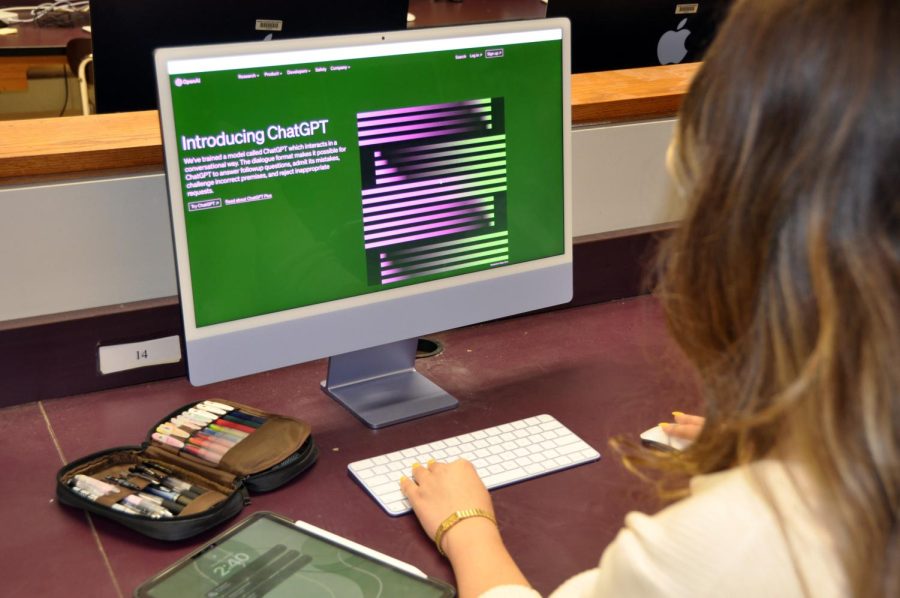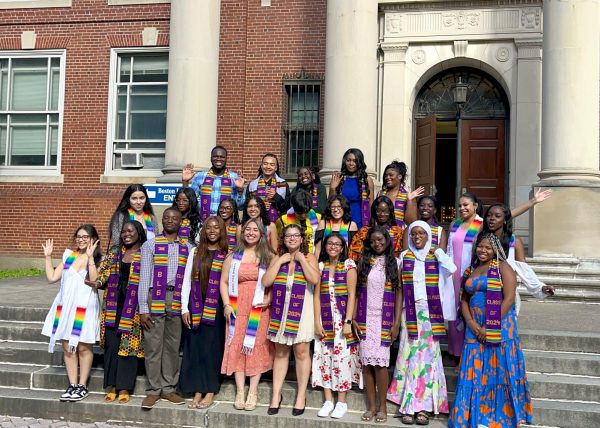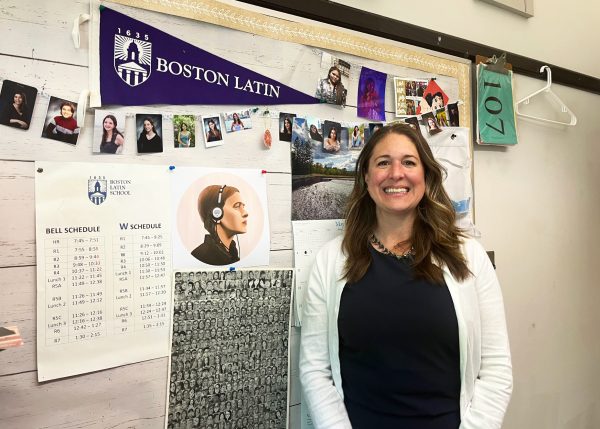Student Council Chats About ChatGPT
During W block on May 24, the Boston Latin School Student Council hosted a Town Hall assembly about ChatGPT and artificial intelligence (AI), seeking student voices to express their opinions on this new technology.
ChatGPT is a newly-developed AI chatbot with the ability to replicate human writing. Since the software is free and easily accessible to the general public, students may be incentivized to use ChatGPT to plagiarize and cheat.
“The fact that this is the last Town Hall is for the most part coincidental, but in some ways, it does make sense to look forward to a topic that will affect the foreseeable future at BLS in our final Town Hall of the year,” explains Student Council Co-President Niall Reynolds (I).
During the assembly, students discussed the importance of preserving academic integrity. The advancement of AI technology means that programs can now drastically alter the structure of one’s writing, creating a fine line between utilizing AI software as a helpful tool and using it to cheat.
With such a significant increase in the usage of ChatGPT, homeroom representative Adi Acosta (III) remarks, “It’s important to hear student voices on this topic so that teachers and administrators can understand why and how students are using AI to complete their assignments. Our assignments, classroom policies and grades are all impacted by how BLS responds to the use of ChatGPT in school, so [we] need to be part of the decision making regarding the topic.”
Although AI is not viewed as inherently bad, students still believe that it is important to establish boundaries for when ChatGPT is appropriate to use for school assignments. Many are unsure of what is considered cheating when it comes to a piece of new technology they are unfamiliar with.
A lack of clarity combined with reluctance to reach out for help can motivate students to use ChatGPT. Acosta explains, “Sometimes using AI isn’t a sign that a student is lazy, but rather that they are going to the wrong place for the academic help they need.” Students may turn to AI software for answers if they are unwilling or uncomfortable with using established resources, such as the Writing Center.
Because the software gathers and pieces together pre-existing information from numerous sources available on the internet, using ChatGPT to complete assignments is considered a form of plagiarism.
Assistant Head of School Danielle Murray notes, “I think to some folks, it feels like that this is just helping their writing. But when you turn in something that’s so far away from your own original work, it really obfuscates what you need support on.”
Some express that if students use AI tools on assignments, teachers would be unable to offer support for students on the topics they struggle with. Not only does using ChatGPT lead to heavy consequences regarding academic dishonesty, but it can also prevent students from developing their writing and thinking skills.
During the assembly, students also raised further questions about how teachers may detect plagiarism in the future. Although any type of AI detection software is imperfect, BLS is currently working on a system to adapt to the new technology and to discourage students from using tools like ChatGPT.
Assistant Head of School Murray remarks on plans the BLS administration has for the future, “We’ll hopefully be able to navigate it as we have [with] all the other technological advancements we’ve had. We can help connect with students and maybe have study resources more available.”






